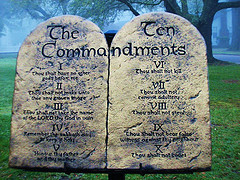Why is Incest Wrong According to the Bible?

Although incest is specifically prohibited by Leviticus 18, we often (unfortunately) isolate this text from its foundation. In biblical law it is important to understand the relationship between Law and creation to aid the process of application. In the case of incest, we need to understand that incest is prohibited because of its connection to Genesis 2:24.
Tracing the Language of Incest to Genesis 2:24
Leviticus 18:6–18 begins with the introductory phrase, “None of you shall approach any blood relative of his to uncover nakedness” (אִישׁ אִישׁ אֶל־כָּל־שְׁאֵר בְּשָׂרֹו לֹא תִקְרְבוּ לְגַלּוֹת עֶרְוָה). This verse functions as an introductory phrase which relates to the entire section on incest.
The pertinent phrase we need to consider is “blood relative,” which can be literally translated, “flesh of his flesh” (שְׁאֵר בְּשָׂרֹו). This phrase invokes repetition of a concept which is first mentioned in Genesis 2:24 in the description of the “one flesh” relationship (cf. Gen 2:23–24). In addition to its use here in Leviticus 18, this same phrase (שְׁאֵר בְּשָׂרֹו) is also used in Leviticus 25:49 to indicate a close family member. Later in Leviticus 18, the term “blood relative” (שְׁאֵר, same Hebrew term) functions in place of the whole phrase to indicate familial closeness in a relationship (cf. Lev 18:12, 13).
Although spelled differently in Hebrew, the terms “flesh” (בָּשָׂר) and “flesh” (שְׁאֵר) are often synonymous in meaning. This overlap between the words is evident by looking at the Exodus account. Exodus 16:1–21 tells the story of how God gave Israel “meat/flesh” (בָּשָׂר) to eat because of their complaining (16:3, 8, 12). Interestingly, when Psalm 78 recounts the story of the Exodus, the author uses the other term for “flesh/meat” (שְׁאֵר) (Ps 78:20, 27). This illustrates the fact that the two words can at times be used interchangeably.
In the laws concerning incest, the “flesh” is of paramount importance. The prohibitions against incest are primarily concerned with the joining together of flesh which is already “one” in the sense that they already share sameness. This concept seems to find its definition from Genesis 2:24, where the relationship between the husband and wife is first identified as “one flesh” (בָשָׂר אֶחָד)—a new sameness which results from two unrelated individuals becoming related intimately through marriage.
In marriage the husband and wife are “one flesh.” They are no longer two, but one. As such, incest is a violation of a new “one flesh” relationship because incest is the joining together of two that are already flesh.
In sum, the words used to define a “close relative” in Leviticus 18 seem to draw attention back to the first definition of family in Genesis 2:24, “one flesh.” This specific terminology seems to be strong evidence that these prohibitions of incest are based on the creation narrative. Thus, incest is wrong because it is a violation of God’s pattern for marriage as described in Genesis 2:24.
For a little more on this subject, see Who Was Cain’s Wife? Was it Incest?